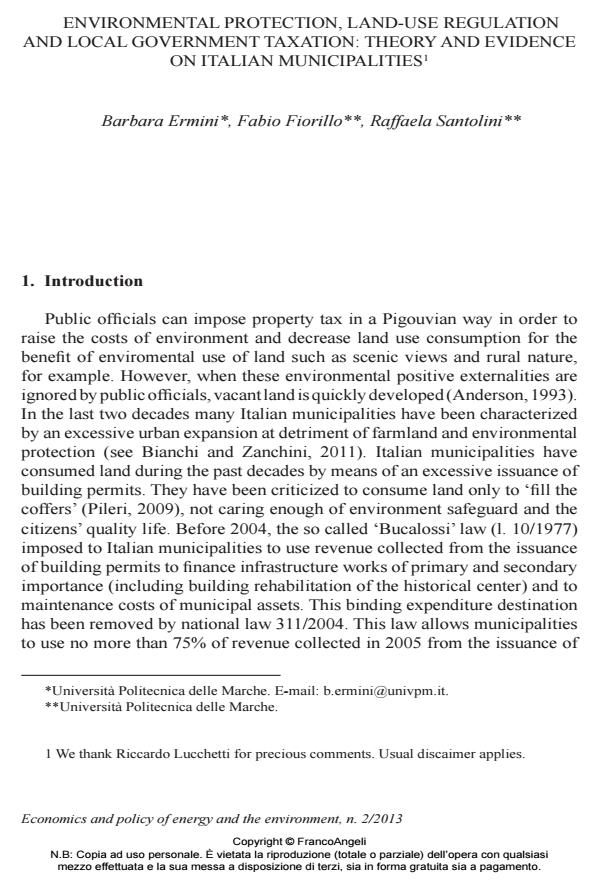Environmental protection, land-use regulation and local government taxation: theory and evidence on Italian municipalities
Journal title ECONOMICS AND POLICY OF ENERGY AND THE ENVIRONMENT
Author/s Barbara Ermini, Fabio Fiorillo, Raffaela Santolini
Publishing Year 2013 Issue 2013/2
Language English Pages 20 P. 93-112 File size 574 KB
DOI 10.3280/EFE2013-002006
DOI is like a bar code for intellectual property: to have more infomation
click here
Below, you can see the article first page
If you want to buy this article in PDF format, you can do it, following the instructions to buy download credits

FrancoAngeli is member of Publishers International Linking Association, Inc (PILA), a not-for-profit association which run the CrossRef service enabling links to and from online scholarly content.
Property taxation can be used in a Pigouvian way to raise the costs of environment and decrease land use consumption for the benefit of enviromental protection. However, in presence of a growing shortage of funding over time, local governments can use property taxation in order to ‘fill the coffers’ rather than to pursue enviromenal safeguard. A negative effect on the budget side could be associated with a weeker control on land use regulation from local governments, since higher enviromental consumption leads to higher tax revenues. In this paper we address this issue developing a theoretical model which shows a positive (negative) relationship between tax revenue and the number of land use permissions when there is complementariety (substitutability) between environmental and human uses of land. We test this relationship on a panel of Italian municipalities from 1999 to 2006. Our results show a positive and significant correlation between property tax revenue and the issuance of land use permits, suggesting the prevalence of the complementariety relationship. This result implies that Italian municipalities are more concerned about funds raising rather than environment preservation.
Keywords: Land use, Land taxation, Building permits, ‘Fill the coffers’
Jel codes: H21, R14, R52
Barbara Ermini, Fabio Fiorillo, Raffaela Santolini, Environmental protection, land-use regulation and local government taxation: theory and evidence on Italian municipalities in "ECONOMICS AND POLICY OF ENERGY AND THE ENVIRONMENT" 2/2013, pp 93-112, DOI: 10.3280/EFE2013-002006